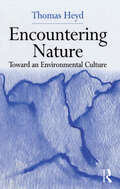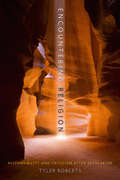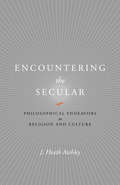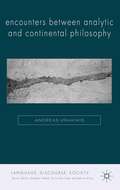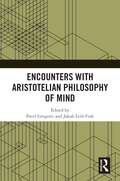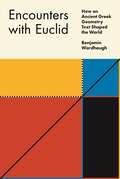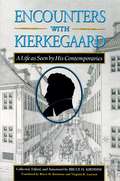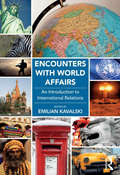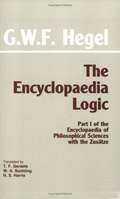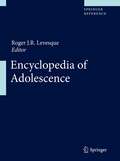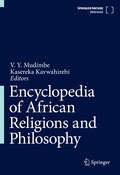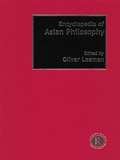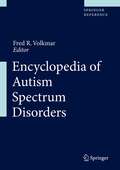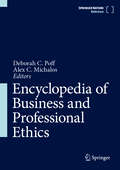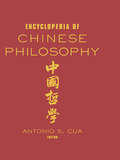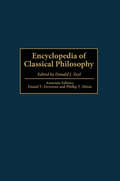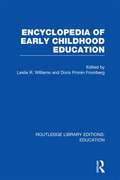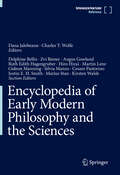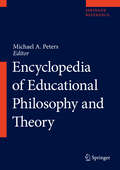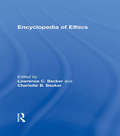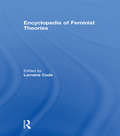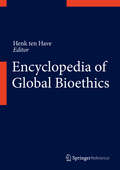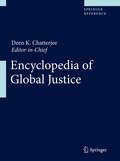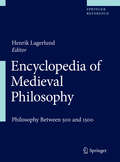- Table View
- List View
Encountering Nature: Toward an Environmental Culture
by Thomas HeydThis book argues that an attentive encounter with nature is of key importance for the development of an environmentally appropriate culture. The fundamental idea is that the environmental degradation that we are increasingly experiencing is best conceived as the consequence of a cultural mismatch: our cultures seem not to be appropriate to the natural environment in which we move and on which we depend in thoroughgoing ways. In addressing this problem, Thomas Heyd weaves together a rich tapestry of perspectives on human interactions with the natural world, ranging from traditional modes of managing human communities that include the natural environment, to the consideration of poetic travelogues, ecological restoration and botanic gardens. The volume is divided into three parts, which respectively consider the relation of human beings to nature in terms of ethics, aesthetics and culture. It engages the current literature in each of these areas with the help of inter-disciplinary approaches, as well as on the basis of personal encounters with natural spaces and processes. The ultimate aim of this book is to make a contribution to the development of a cultural fabric that is suitable to the natural spaces and processes in which we may thrive, and on which we all depend as individuals and as a species.
Encountering Religion: Responsibility and Criticism After Secularism (Insurrections: Critical Studies in Religion, Politics, and Culture)
by Tyler RobertsTyler Roberts encourages scholars to abandon rigid conceptual oppositions between "secular" and "religious" to better understand how human beings actively and thoughtfully engage with their worlds and make meaning. The artificial distinction between a self-conscious and critical "academic study of religion" and an ideological and authoritarian "religion," he argues, only obscures the phenomenon. Instead, Roberts calls on intellectuals to approach the field as a site of "encounter" and "response," illuminating the agency, creativity, and critical awareness of religious actors. To respond to religion is to ask what religious behaviors and representations mean to us in our individual worlds, and scholars must confront questions of possibility and becoming that arise from testing their beliefs, imperatives, and practices. Roberts refers to the work of Hent de Vries, Eric Santner, and Stanley Cavell, each of whom exemplifies encounter and response in their writings as they traverse philosophy and religion to expose secular thinking to religious thought and practice. This approach highlights the resources religious discourse can offer to a fundamental reorientation of critical thought. In humanistic criticism after secularism, the lines separating the creative, the pious, and the critical themselves become the subject of question and experimentation.
Encountering Religion
by Tyler RobertsTyler Roberts encourages scholars to abandon the conceptual opposition between "secular" and "religious" to better understand the revival of political and public religion across the world. Roberts approaches the phenomenon as a process of "encounter" and "response," illuminating the agency, creativity, and critical awareness of religious actors. To respond to religion is to ask what religious behaviors and representations mean to us in our worlds, confronting the questions of possibility and becoming that arise from testing our beliefs and practices. He incorporates the work of Hent de Vries, Eric Santner, and Stanley Cavell, who exemplify encounter and response by exposing secular thinking to religious thought and practice.
Encountering the Secular: Philosophical Endeavors in Religion and Culture (Studies in Religion and Culture)
by J. Heath AtchleyIn Encountering the Secular, J. Heath Atchley proposes an alternative to the understanding of the secular as that which opposes the religious, and he turns to American and Continental philosophy to support his critique. Drawing from thinkers as disparate as Ralph Waldo Emerson and Gilles Deleuze, and engaging with contemporary literature and film, Atchley shows how the division of experience (individual, cultural, political) into the distinct realms of the religious and the secular overlooks the subtle ways in which value can emerge. Far from arguing that the religious and the secular are the same, he means instead to suggest that the dogmatic separation between these two realms gets in the way of experiencing an immanent value, a kind of value tied neither to a transcendent reality (e.g., a god or an ideal) nor to a self-centered reality (e.g., pleasure or knowledge).Each chapter cultivates a particular concept that challenges the breach between the secular and the religious, rendering that breach ambiguous. Such ambiguity, the author affirms, is relevant to a time when rigid and simplistic notions of religion and secularity are used to justify thoughtlessness and even violence. All too often the secular is thought of either as a triumph in "overcoming" the presumed irrationality and oppression of religion, or as lament in "losing" the meaning religion is thought once to have offered. Atchley suggests a view of the secular as an opportunity to experience an immanent value that is neither controlled by the human self nor conferred by a divine entity.Written in a prose that is lucid, lively, and provocative, Encountering the Secular shows how a philosophical endeavor might be understood as a spiritual practice.
Encounters Between Analytic And Continental Philosophy
by Andreas VrahimisThis book examines the encounters between leading 'analytic' and 'continental' philosophers: Frege and Husserl, Carnap and Heidegger, Merleau-Ponty, Bataille and Ayer, the Royaumont colloquium, and Derrida with Searle.
Encounters with Aristotelian Philosophy of Mind
by Pavel Gregoric Jakob Leth FinkThis collection of essays engages with several topics in Aristotle’s philosophy of mind, some well-known and hotly debated, some new and yet to be explored. The contributors analyze Aristotle’s arguments and present their cases in ways that invite contemporary philosophers of mind to consider the potentials—and pitfalls—of an Aristotelian philosophy of mind. The volume brings together an international group of renowned Aristotelian scholars as well as rising stars to cover five main themes: method in the philosophy of mind, sense perception, mental representation, intellect, and the metaphysics of mind. The papers collected in this volume, with their choice of topics and quality of exposition, show why Aristotle is a philosopher of mind to be studied and reckoned with in contemporary discussions. Encounters with Aristotelian Philosophy of Mind will be of interest to scholars and advanced students of ancient philosophy and philosophy of mind.
Encounters with Euclid: How an Ancient Greek Geometry Text Shaped the World
by Benjamin WardhaughA sweeping cultural history of one of the most influential mathematical books ever writtenEuclid's Elements of Geometry is one of the fountainheads of mathematics—and of culture. Written around 300 BCE, it has traveled widely across the centuries, generating countless new ideas and inspiring such figures as Isaac Newton, Bertrand Russell, Abraham Lincoln, and Albert Einstein. Encounters with Euclid tells the story of this incomparable mathematical masterpiece, taking readers from its origins in the ancient world to its continuing influence today.In this lively and informative book, Benjamin Wardhaugh explains how Euclid’s text journeyed from antiquity to the Renaissance, introducing some of the many readers, copyists, and editors who left their mark on the Elements before handing it on. He shows how some read the book as a work of philosophy, while others viewed it as a practical guide to life. He examines the many different contexts in which Euclid's book and his geometry were put to use, from the Neoplatonic school at Athens and the artisans' studios of medieval Baghdad to the Jesuit mission in China and the workshops of Restoration London. Wardhaugh shows how the Elements inspired ideas in theology, art, and music, and how the book has acquired new relevance to the strange geometries of dark matter and curved space.Encounters with Euclid traces the life and afterlives of one of the most remarkable works of mathematics ever written, revealing its lasting role in the timeless search for order and reason in an unruly world.
Encounters with Kierkegaard: A Life as Seen by His Contemporaries
by Søren KierkegaardEncounters with Kierkegaard is a collection of every known eyewitness account of the great Danish thinker. Through many sharp observations of family members, friends and acquaintances, supporters and opponents, the life story of this elusive and remarkable figure comes into focus, offering a rare portrait of Kierkegaard the man. Often viewed by his contemporaries as a person who deliberately cultivated an air of mystery and eccentricity, Søren Kierkegaard (1813-1855) has been, then and now, a subject of great speculation. His startling attack on the established church, his broken engagement with a young woman from a respected family, and his searing criticisms of literary figures--from the editors of The Corsair to Hans Christian Andersen--are among the acts that brought him much notoriety during his short lifetime. Yet arriving at a sense of the philosopher's personality and motives behind his behavior has been a difficult task. He left no memoirs of autobiography, but in the enormous cannon of his published writings, the author and the person Søren Kierkegaard is problematically present in a welter of disguises. An indispensable path to understanding what he was like as a person, maintains Bruce Kirmmse, is through the observations of his contemporaries. These accounts, ranging from the writings of Meïr Aron Goldschmidt, editor of The Corsair, to the recollections of Kierkegaard's fiancée, are organized around the major episodes of the philosopher's life. They enable us to glimpse, among many things, his spiritual and intellectual development, to get a sense of what it was like to be the object of his friendship or his wrath, and to examine various persons' opinions about his relationship with his young fiancée. The memories of this woman, Regine Olsen, who later married Fritz Schlegel, are among the most moving passages: they reveal her profound suffering, her personal understanding of Kierkegaard, and the satisfaction she ultimately felt, knowing that "he took her with him into history." This collection of first-hand accounts invites the reader to compare and interpret a wealth of fascinating stories, and in the end forms an intriguing "do-it-yourself" biography for both the scholar and general reader.
Encounters with World Affairs: An Introduction to International Relations (Worlding Beyond The West Ser.)
by Emilian KavalskiThis book is designed to familiarise students with leading International Relations (IR) theories and their explanation of political events, phenomena, and processes which cross the territorial boundaries of the state. Thus, students will be exposed to the interplay between power, interest, ideas, identity, and resistance, in explaining continuity and change in international relations. Developed to provide students with the analytical tools and intellectual frameworks needed to understand the behaviour of different international actors in contemporary global affairs. This textbook responds to the challenges of a dynamic job market by assisting students to gain both thorough theoretical knowledge and training them to apply this knowledge to real world problems. In short, this textbook delivers: A comprehensive and interdisciplinary approach to the examination of national, regional and global trends in politics, economics and socio-cultural developments allowing students to understand: ¢ the practice and theory of contemporary international relations ¢ the politics, culture, history, and economies of different regions around the world ¢ the role played by international interactions, culture, and government in local, national, and global settings. Equipping students with the proficiency: ¢ to understand and interpret the dynamics, patterns, and issues of global affairs ¢ to know how to get more information about particular questions ¢ to evaluate that information independently and effectively. To these ends, the textbook provides a number of features that will appeal to students and avoids overwhelming students with chapters on topics which (in practice) are rarely on courses, while nonetheless providing a comprehensive overview of the field. Introduces students to the main debates, topics, and terms in the field and allows them to decide which they would like to focus on in their further studies.
The Encyclopaedia Logic with the Zusätze: Part I of the Encyclopaedia of Philosophical Sciences
by W. A. Suchting H. S. Harris T. F. Geraets G. W. F. HegelThe appearance of this translation is a major event in English-language Hegel studies, for it is more than simply a replacement for Wallace's translation cum paraphrase. Hegel's Prefaces to each of the three editions are translated for the first time into English. There is a very detailed Introduction translating Hegel's German, which serves not only as a guide to the translator's usage but also to Hegel's. Also included are a detailed bilingual annotated glossary, very extensive bibliographic and interpretive notes to Hegel's text (28 pp. ), an Index of References for works cited in the notes, a select Bibliography of recent works on Hegel's logic, and a detailed Index (16 pp. ). The translation is guided by the (correct) principle that rendering Hegel's logical thought clearly and consistently requires rendering his technical terms logically.
Encyclopedia of Adolescence
by Roger J.R. LevesqueThe Encyclopedia of Adolescence breaks new ground as an important central resource for the study of adolescence. Comprehensive in breath and textbook in depth, the Encyclopedia of Adolescence - with entries presented in easy-to-access A to Z format - serves as a reference repository of knowledge in the field as well as a frequently updated conduit of new knowledge long before such information trickles down from research to standard textbooks. By making full use of Springer's print and online flexibility, the Encyclopedia is at the forefront of efforts to advance the field by pushing and creating new boundaries and areas of study that further our understanding of adolescents and their place in society. Substantively, the Encyclopedia draws from four major areas of research relating to adolescence. The first broad area includes research relating to "Self, Identity and Development in Adolescence". This area covers research relating to identity, from early adolescence through emerging adulthood; basic aspects of development (e.g., biological, cognitive, social); and foundational developmental theories. In addition, this area focuses on various types of identity: gender, sexual, civic, moral, political, racial, spiritual, religious, and so forth. The second broad area centers on "Adolescents' Social and Personal Relationships". This area of research examines the nature and influence of a variety of important relationships, including family, peer, friends, sexual and romantic as well as significant nonparental adults. The third area examines "Adolescents in Social Institutions". This area of research centers on the influence and nature of important institutions that serve as the socializing contexts for adolescents. These major institutions include schools, religious groups, justice systems, medical fields, cultural contexts, media, legal systems, economic structures, and youth organizations. "Adolescent Mental Health" constitutes the last major area of research. This broad area of research focuses on the wide variety of human thoughts, actions, and behaviors relating to mental health, from psychopathology to thriving. Major topic examples include deviance, violence, crime, pathology (DSM), normalcy, risk, victimization, disabilities, flow, and positive youth development.
Encyclopedia of African Religions and Philosophy
by V. Y. Mudimbe Kasereka KavwahirehiThis comprehensive encyclopedia presents African thinkers, concepts and traditions, with a focus on African religious and philosophical practices. It offers a dependable and significant synthesis of African studies that encompasses major trends in the field since the early 1980s. The encyclopedia considers all religious and philosophical systems of Africa, both indigenous and non-indigenous. It also recognizes the determining role of the Diaspora in understanding African traditions and African identity. The work has benefited immensely from commitments in advanced interdisciplinary exchanges in a number of domains, including comparative research in epistemology and from surveys in postcolonial studies and social sciences, along with religious and philosophical compendia. In brief, this is an encyclopedia made from the viewpoint of African studies and in dialogue with scientific traditions
Encyclopedia of Asian Philosophy
by Oliver LeamanIncorporating cultural and religious contexts, this unique Encyclopedia provides a vital guide to the main concepts and thinkers in Asian philosophy - starting with Abhidharma and ending with Zurvan.The main philosophical trends and thinkers in each geographical area are featured, with an emphasis on endtemporary developments and movements. The A-Z structured encyclopedia emphasizes that Asian philosophy is not merely an ancient form of thought but that it is a living philosophy, with roots in the past, and also a potent and animate presence today. This translates into the reciprocal exchange of theories between Eastern and Western thinking, for example of new schools of thought such as orientalism. Requiring no prior knowledge of philosophy, religion or Asian cultures, this book is essential reading for students, teachers and the interested individual who wishes to gain an understanding of the philosophical basis to Asian cultural systems.
Encyclopedia of Autism Spectrum Disorders
by Fred R. VolkmarThis major reference work breaks new ground as an electronic resource for students, educators, researchers, and professionals. Comprehensive in breath and textbook in depth, the Encyclopedia of Autism Spectrum Disorders serves as a reference repository of knowledge in the field as well as a regularly updated conduit of new knowledge long before such information trickles down from research to standard textbooks. The Encyclopedia consists of 5 volumes and approximately 1,500 entries divided by the major conceptual areas of ASD and PDDs, including: - Research trends and findings - Behavior/speech - Communication - Treatments - Education Taking advantage of the techniques offered by the electronic medium, the Encyclopedia of Autism Spectrum Disorders offers an extensive cross-referencing system facilitating search and retrieval of information.
Encyclopedia of Business and Professional Ethics
by Deborah C. Poff Alex C. MichalosThis encyclopedia, edited by the past editors and founder of the Journal of Business Ethics, is the only reference work dedicated entirely to business and professional ethics. Containing over 2000 entries, this multi-volume, major research reference work provides a broad-based disciplinary and interdisciplinary approach to all of the key topics in the field. The encyclopedia draws on three interdisciplinary and over-lapping fields: business ethics, professional ethics and applied ethics although the main focus is on business ethics. The breadth of scope of this work draws upon the expertise of human and social scientists, as well as that of professionals and scientists in varying fields. This work has come to fruition by making use of the expert academic input from the extraordinarily rich population of current and past editorial board members and section editors of and contributors to the Journal of Business Ethics.
Encyclopedia of Chinese Philosophy
by Antonio S. CuaFeaturing contributions from the world's most highly esteemed Asian philosophy scholars, this important new encyclopedia covers the complex and increasingly influential field of Chinese thought, from earliest recorded times to the present day.Including coverage on the subject previously unavailable to English speakers, the Encyclopedia sheds light on the extensive range of concepts, movements, philosophical works, and thinkers that populate the field. It includes a thorough survey of the history of Chinese philosophy; entries on all major thinkers from Confucius to Mou Zongsan; essential topics such as aesthetics, moral philosophy, philosophy of government, and philosophy of literature; surveys of Confucianism in all historical periods (Zhou, Han, Tang, and onward) and in key regions outside China; schools of thought such as Mohism, Legalism, and Chinese Buddhism; trends in contemporary Chinese philosophy, and more.
Encyclopedia of Classical Philosophy
by Donald J. Zeyl Daniel T. Devereux Phillip T. MitsisThe Encyclopedia of Classical Philosophy is a reference work on the philosophy of Greek and Roman antiquity. It includes subjects and figures from the dawn of philosophy in Ionia in the 6th century BC to the demise of the Academy in Athens in the 6th century AD. Scholarly study of the texts and philosophical thought of this period has been, during the last half of the 20th century, amazingly productive and has become increasingly sophisticated. The 269 articles in the encyclopedia reflect this development. While the majority of the articles are devoted to individual figures, many of the articles are thematic surveys of broad areas such as epistemology, ethics, and political thought. Some articles focus on particular concepts that evoked significant philosophical treatment by the ancients, and have proved central to later thought. Other articles treat fields that are no longer considered part of philosophy proper, such as mathematics and science. There are articles examining areas of intellectual or cultural endeavour, such as poetry or rhetoric, or genres of philosophical expression, such as dialogue and diatribe. Still others describe the historical developments of philosophical schools and traditions. The encyclopedia includes a chronology and guide to further reading. Best Reference Source
Encyclopedia of Early Childhood Education (Routledge Library Editions: Education)
by Leslie R. Williams Doris Pronin FrombergThis Encyclopedia is a reference work about young children in the USA, designed for use by policy makers, community planners, parents of young children, teacher and early childhood educators, programme and school administrators, among others. The field of early childhood education has been affected by changes taking place in the nation’s economy, demographics, schools, communities and families that influence political and professional decisions. These diverse historical, political economic, socio-cultural, intellectual and educational influences on early childhood education have hindered the development of a clear definition of the field. The Encyclopedia provides an opportunity to define the field against the background of these influences and relates the field of early childhood education to its diverse contexts and to the cultural and technological resources currently affecting it.
Encyclopedia of Early Modern Philosophy and the Sciences
by Delphine Bellis Zvi Biener Justin E. Smith Angus Gowland Ruth Hagengruber Hiro Hirai Martin Lenz Gideon Manning Silvia Manzo Cesare Pastorino Marius Stan Kirsten WalshThis Encyclopedia offers a fresh, integrated and creative perspective on the formation and foundations of philosophy and science in European modernity. Combining careful contextual reconstruction with arguments from traditional philosophy, the book examines methodological dimensions, breaks down traditional oppositions such as rationalism vs. empiricism, calls attention to gender issues, to ‘insiders and outsiders’, minor figures in philosophy, and underground movements, among many other topics. In addition, and in line with important recent transformations in the fields of history of science and early modern philosophy, the volume recognizes the specificity and significance of early modern science and discusses important developments including issues of historiography (such as historical epistemology), the interplay between the material culture and modes of knowledge, expert knowledge and craft knowledge. This book stands at the crossroads of different disciplines and combines their approaches – particularly the history of science, the history of philosophy, contemporary philosophy of science, and intellectual and cultural history. It brings together over 100 philosophers, historians of science, historians of mathematics, and medicine offering a comprehensive view of early modern philosophy and the sciences. It combines and discusses recent results from two very active fields: early modern philosophy and the history of (early modern) science. Editorial BoardEDITORS-IN-CHIEFDana Jalobeanu University of Bucharest, RomaniaCharles T. Wolfe Ghent University, BelgiumASSOCIATE EDITORSDelphine Bellis University Nijmegen, The NetherlandsZvi Biener University of Cincinnati, OH, USAAngus Gowland University College London, UKRuth Hagengruber University of Paderborn, GermanyHiro Hirai Radboud University Nijmegen, The NetherlandsMartin Lenz University of Groningen, The NetherlandsGideon Manning CalTech, Pasadena, CA, USASilvia Manzo University of La Plata, ArgentinaEnrico Pasini University of Turin, ItalyCesare Pastorino TU Berlin, GermanyLucian Petrescu Université Libre de Bruxelles, BelgiumJustin E. H. Smith University de Paris Diderot, FranceMarius Stan Boston College, Chestnut Hill, MA, USAKoen Vermeir CNRS-SPHERE + Université de Paris, FranceKirsten Walsh University of Calgary, Alberta, Canada
Encyclopedia of Educational Philosophy and Theory
by Michael A. PetersThis encyclopaedia is a dynamic reference and study place for students, teachers, researchers and professionals in the field of education, philosophy and social sciences, offering both short and long entries on topics of theoretical and practical interest in educational theory and philosophy by authoritative world scholars representing the full ambit of education as a rapidly expanding global field of knowledge and expertise. This is an encyclopaedia that is truly global and while focused mainly on the Western tradition is also respectful and representative of other knowledge traditions. It professes to understand the globalization of knowledge. It is unique in the sense that it is based on theoretical orientations and approaches to the main concepts and theories in education, drawing on the range of disciplines in the social sciences. The encyclopaedia privileges the "theory of practice", recognizing that education as a discipline and activity is mainly a set of professional practices that inherently involves questions of power and expertise for the transmission, socialization and critical debate of competing norms and values.
Encyclopedia of Ethics
by Lawrence C. Becker Charlotte B. BeckerThe editors, working with a team of 325 renowned authorities in the field of ethics, have revised, expanded and updated this classic encyclopedia. Along with the addition of 150 new entries, all of the original articles have been newly peer-reviewed and revised, bibliographies have been updated throughout, and the overall design of the work has been enhanced for easier access to cross-references and other reference features. New entries include * Cheating * Dirty hands * Gay ethics * Holocaust * Journalism * Political correctness * and many more.
Encyclopedia of Feminist Theories
by Lorraine CodeThe path-breaking Encyclopedia of Feminist Theories is an accessible, multidisciplinary insight into the complex field of feminist thought. The Encyclopedia contains over 500 authoritative entries commissioned from an international team of contributors and includes clear, concise and provocative explanations of key themes and ideas. Each entry contains cross references and a bibliographic guide to further reading; over 50 biographical entries provide readers with a sense of how the theories they encounter have developed out of the lives and situations of their authors.
Encyclopedia of Global Bioethics
by Henk Ten HaveThis work presents the first comprehensive and systematic treatment of all relevant issues and topics in contemporary global bioethics. Now that bioethics has entered into a novel global phase, a wider set of issues, problems and principles is emerging against the backdrop of globalization and in the context of global relations. This new stage in bioethics is furthermore promoted through the ethical framework presented in the UNESCO Universal Declaration on Bioethics and Human Rights adopted in 2005. This Declaration is the first political statement in the field of bioethics that has been adopted unanimously by all Member States of UNESCO. In contrast to other international documents, it formulates a commitment of governments and is part of international law (though not binding as a Convention). It presents a universal framework of ethical principles for the further development of bioethics at a global level. The Encyclopedia of Global Bioethics caters to the need for a comprehensive overview and systematic treatment of all pertinent new topics and issues in the emerging global bioethics debate. It provides descriptions and analysis of a vast range of important new issues from a truly global perspective and with a cross-cultural approach. New issues covered by the Encyclopedia and neglected in more traditional works on bioethics include, but are not limited to, sponsorship of research and education, scientific misconduct and research integrity, exploitation of research participants in resource-poor settings, brain drain and migration of healthcare workers, organ trafficking and transplant tourism, indigenous medicine, biodiversity, commodification of human tissue, benefit sharing, bio industry and food, malnutrition and hunger, human rights and climate change.
Encyclopedia of Global Justice
by Deen K. ChatterjeeThis two-volume Encyclopedia of Global Justice, published by Springer, along with Springer's book series, Studies in Global Justice, is a major publication venture toward a comprehensive coverage of this timely topic. The Encyclopedia is an international, interdisciplinary, and collaborative project, spanning all the relevant areas of scholarship related to issues of global justice, and edited and advised by leading scholars from around the world. The wide-ranging entries present the latest ideas on this complex subject by authors who are at the cutting edge of inquiry. The Encyclopedia sets the tone and direction of this increasingly important area of scholarship for years to come. The entries number around 500 and consist of essays of 300 to 5000 words. The inclusion and length of entries are based on their significance to the topic of global justice, regardless of their importance in other areas.
Encyclopedia of Medieval Philosophy
by Henrik LagerlundResearch on medieval philosophy has advanced greatly in the last thirty years, but there has not been a comprehensive encyclopedia summarizing the current research available. This two-volume reference work fills that void. The Encyclopedia of Medieval Philosophy covers all areas of philosophy in the Middle Ages and part of the Renaissance, ranging from 500 to 1500 CE. It contains general entries on medieval philosophers and medieval philosophies and on the key terms and concepts in the subject area, but it also provides more in-depth details and analyses of particular theories. Furthermore, in order to gain an insight into the social and cultural context of the material, entries are included on the teaching of philosophy, the career of philosophers, and the place of philosophy within the universities. Complete with cross-references between key words and related essays to enable efficient searches, this Encyclopedia is exhaustive, unprecedented, and user-friendly. It is indispensable for scholars of medieval philosophy and of the history of ideas, and it is also useful for anyone interested in medieval ideas and thought.
